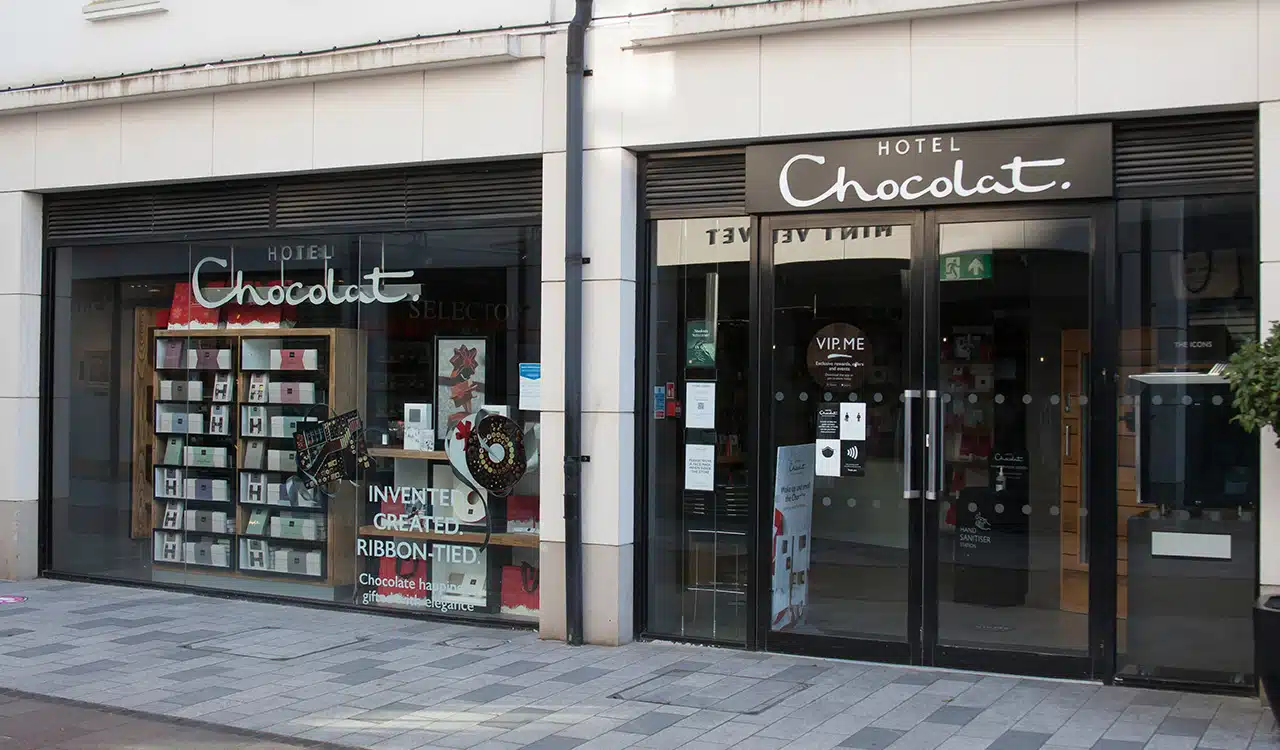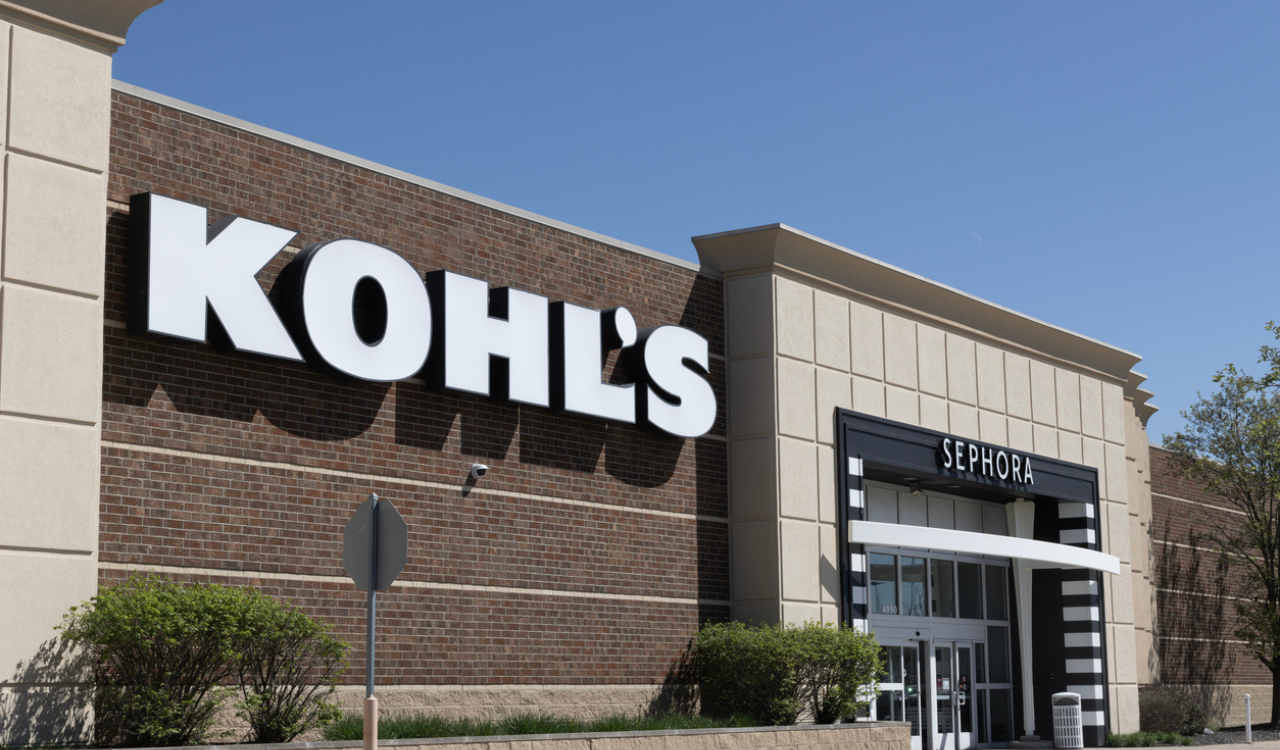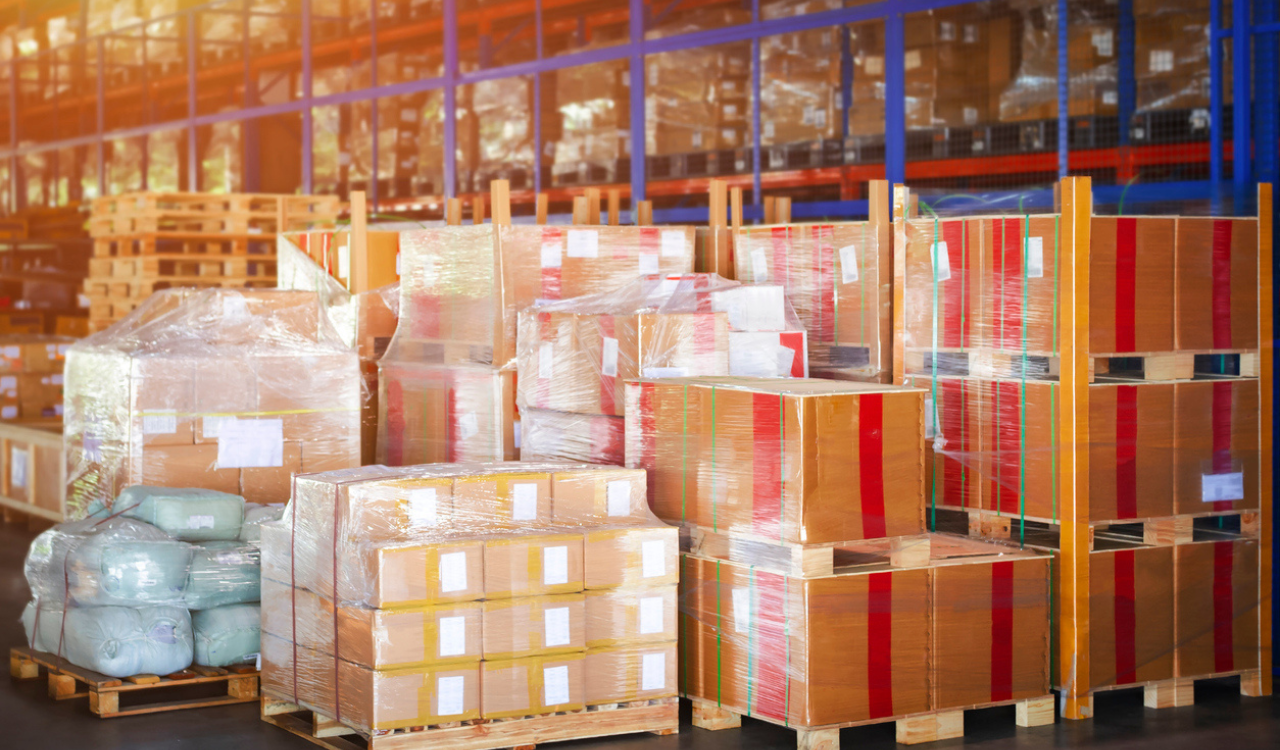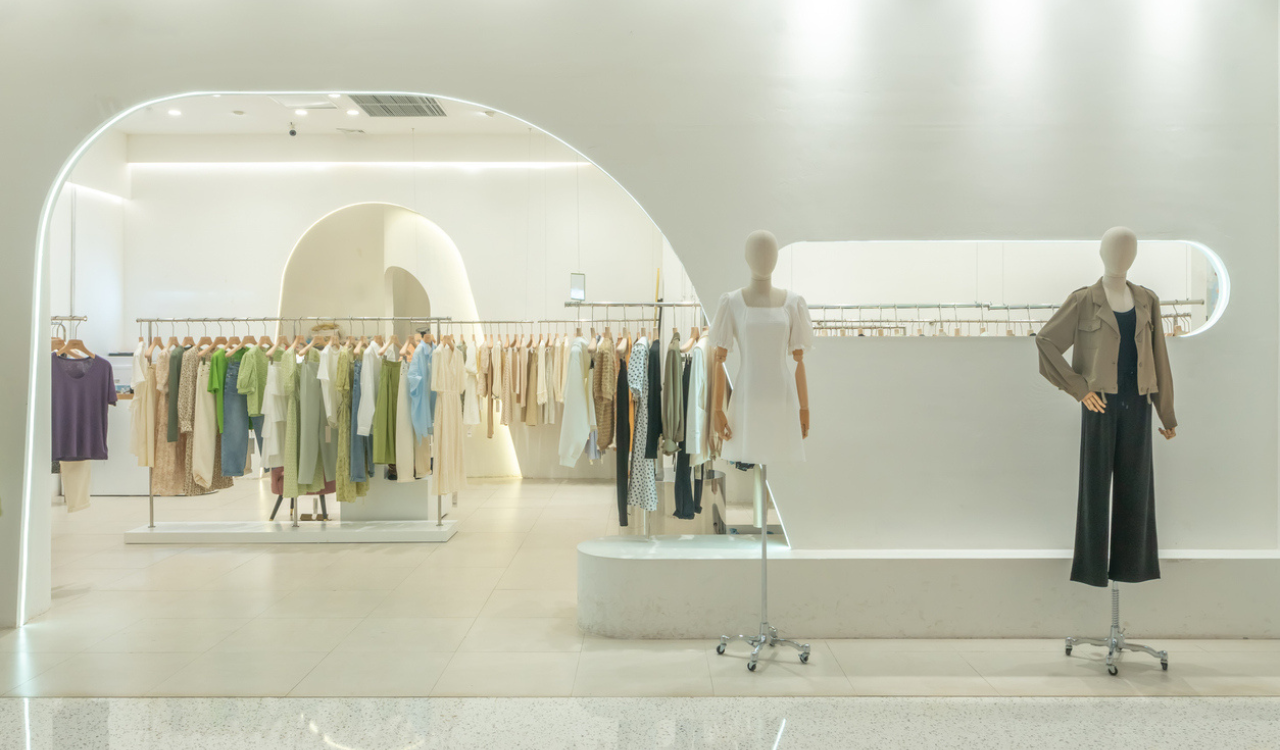Now for some good news. Buoyed by sweet success at home and major global ambitions, not one but two luxury U.K. chocolatiers have the U.S. in their sightlines. And both have made no secret of their ambitions, with Hotel Chocolat now backed by confectionary giant Mars Inc. and upstart Knoops declaring that it has designs on a billion-dollar empire.
Hotel Chocolat’s Thirlwell described the acquisition of the 250-acre Rabot Estate in Saint Lucia and transforming it into a boutique hotel as “destiny.” After a customer sent Thirwell a 1920s book about chocolate making while he was visiting his father in the Caribbean, he was inspired to fulfill his dream to create a place where luxury, wellbeing and style could come together with, naturally, cocoa and chocolate.
Sugar High
Indeed, American consumers won’t have long to wait. Just in time for the annual Easter candy fest, premium U.K.-based chocolate and coffee retailer Hotel Chocolat is set to relaunch in the U.S. after its $679 million acquisition by confectionary giant Mars.
It’s returning to the U.S. this March with two stores slated for Chicago in former Foxtrot sites at Lincoln Park and Lakeview, just under three years after it shuttered five stores in New York following its first foray into North America. The Hertfordshire-based business previously opted to exit the U.S. market in July 2022 to focus on its more profitable U.K. operations.
But little wonder that Hotel Chocolat is feeling emboldened a second time around. Not only does it have the sweet firepower of a huge corporation behind it, but its expansion plans come after it posted a 10.4 percent year-on-year increase in group sales during the four weeks ended December 29, 2024, and a 33 percent year-on-year rise in café sales.
As a result, it is also seeking to bolster its U.K. presence with 25 new stores in its home market over the next 12 months, building on its 147 British locations, 68 of which include a Hotel Chocolat café. “Despite consumers continuing to feel the pinch, they went for quality this Christmas,” Angus Thirlwell, Founder and CEO, said of the results as he pointed to strong sales across accessible price points from $7.50 chocolate-filled table crackers up to its Velvetiser experience hamper, which retailed at over $250.
Hotel Chocolat has a small overseas presence. It operates 11 stores in Japan, all of which have an in-store café, as part of a joint venture with Tokyo-based Eat Creator in which Hotel Chocolat holds 20 percent equity. It also has a single site in Gibraltar (the U.K.-owned outpost off the southern Spanish coast) and a boutique hotel in St Lucia, where Hotel Chocolat operates a cacao farm.
Thirlwell described the acquisition of the 250-acre Rabot Estate in Saint Lucia and transforming it into a boutique hotel as “destiny.” After a customer clearing out an office sent him a 1920s book about chocolate making while Thirlwell was visiting his father in the Caribbean in 2006, he was inspired to fulfill his dream to create a place where luxury, wellbeing and style could come together with, naturally, cocoa and chocolate.
Along the way, other premium rivals sold out and became pedestrian and mainstream. While premium is difficult to succeed on crowded supermarket shelves, Hotel Chocolat doubled down on premium stores with contemporary visual merchandising and an emphasis on quality. In short, it encapsulated the concept of affordable luxury and gifting.
Second Time Round
This is not its first foray into international markets. Founded in 1993, Hotel Chocolat began selling chocolate products online that year, making it one of the U.K.’s earliest etailers. The brand opened its first retail outlet in 2004 and its debut café in 2010, before opening stores in Denmark, Hong Kong and the U.S. during an aggressive expansion push between 2015 and 2018.
At the heart of all their operations, the problem seems to be that while Hotel Chocolat had nailed the niche, it had not mastered the slick operational efficiency required to go from national to international. Then along came Virginia-based Mars, which said it would provide Hotel Chocolat with an enhanced platform for growth, avowing to scale the business across the U.K. and explore further international expansion. “Hotel Chocolat is a brand we have admired for many years, with its leading premium product offering, world-class quality and deep omnichannel retail expertise,” said Andrew Clarke, Global President, Mars Snacking of the deal.
He should know. Clarke presides over a business with annual revenues of $47 billion, and Mars manages a portfolio of brands under its Snacking and Food divisions that includes the Mars, Galaxy, Maltesers, M&Ms, Skittles, Snickers and Wrigley’s confectionary ranges.
Knoops’ Billion-Dollar Opportunity
Rival Knoops also announced robust Christmas trading and confirmed plans for a U.S. debut later this year. The chain currently operates 24 U.K. sites alongside one overseas outlet in Dubai and has plans to open 16 stores in its domestic market before the end of 2025.
In its latest trading update, Knoops reported 22 percent comp sales growth in the U.K. during the five weeks ended December 29, 2024, compared with the previous year and the business has forecast annual U.K. revenues will hit $19.6 million for the 12 months ending March 31, 2025.
Knoops previously announced plans to open 20 new U.K. stores this year as part of a goal to reach 200 domestic outlets within the next four years. However, the business has fast-tracked and is now seeking to open 40 new outlets across the country within the next 12 months as it targets 300 U.K. stores by 2028.
Knoops made its debut foray outside the U.K. in November 2024 when it opened its first outlet in Dubai, and it is planning to enter more Middle East markets this year. The premium-drinking chocolate and coffee chain is also in advanced discussions to enter the U.S. and China, with its first outlets in both markets expected before the end of the year.
Founded in 2013 in East Sussex (in England’s south), Knoops might be a new name to many, but it has brought serious experience to its board. To support international growth, Knoops has appointed Lush co-founder and former Hotel Chocolat chairman Andrew Gerrie to its board of directors, where he will work alongside Julian Metcalfe, co-founder of Pret A Manger (another British F&B chain with serious designs on the U.S.) and former Sanctuary Spa Group CEO Alice Avis.
It’s a far cry from the humble beginnings in small tourist town Rye where German founder Jens Knoop started a hot chocolate café that went viral after TripAdvisor recommendations and when in 2017, national newspaper The Telegraph called it “The best hot chocolate in the world!”
Knoops is certainly not short on aspiration. Just 12 months ago, CEO William Gordon-Harris unveiled plans to build a “billion-dollar brand” and raised over $18 million in funding rounds to support ambitious growth plans, based on a company-owned store expansion model.
“The growth levels are absolutely enormous. The Chinese partners we’re talking to at the moment scaled 3,000 to 4,000 units for one particular brand in 36 months. We’re an affordable luxury business but we are also a mass-market proposition. We’re a category killer. We have no competitors in the world that do what we do, and I think that with the right ambition, combined with the right systems and people, I don’t believe there’s any way we can’t build a billion-dollar brand here,” Gordon-Harris told The Times.
Sweet Expansion
The U.S. has not always been a happy hunting ground for U.K. brands but there is certainly no holding back on the confidence of Hotel Chocolat and Knoops. While the former is well known to its domestic market and did much to establish the premium chocolate market in the U.K., Knoops has opted to seek out international customers while it finds its feet on a national level.
Both luxury brands share origin stories with founders who have a genuine passion for chocolate. They must also retain that artisanal spirit within a corporate environment in the case of Hotel Chocolat and through fast-track scaling in the case of Knoops.
Is there a saturation point for upscale chocolate? The same could be asked of coffee chains, to which the answer appears to be a resounding no. In an age where demand for affordable luxury is rising and alternatives to alcoholic drinks are being sought by younger generations, the Brits are banking on the irresistible charm of chocolate.





